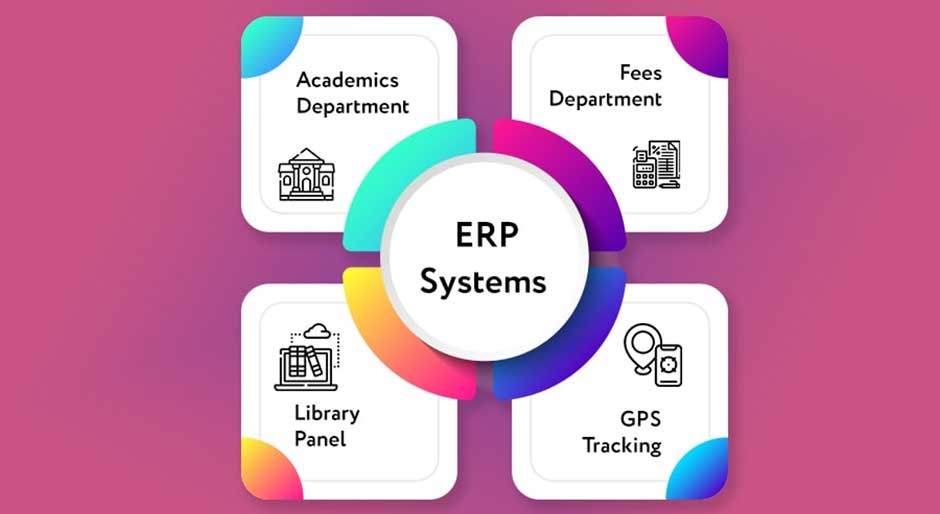Organizations are rapidly realising the critical role that Enterprise Resource Planning (ERP) systems play in managing human resources and encouraging employee engagement in today’s competitive business environment. To facilitate effective data management and process automation, ERP software streamline and consolidate multiple HR processes, such as hiring, onboarding, payroll, benefits administration, performance management, and training.
ERP solutions enable HR managers to concentrate on key goals and foster a healthy work environment by giving real-time access to correct employee information and automating repetitive processes. By providing self-service portals, performance tracking tools, and training modules, these systems also enable increased employee engagement, encouraging a sense of empowerment, collaboration, and growth among employees.
ERP systems in HR management have enormous potential for fostering a highly engaged and motivated workforce, increasing productivity, and driving organisational success.
Why Use ERP for Human Resource Management
Let’s discover the reasons why ERP systems have become an inevitable part of human resource management:
- Payroll Management: Payroll operations can be streamlined and automated by utilising an ERP system for HR administration. The software makes it possible to calculate salaries, tax deductions, and benefits accurately and promptly, reducing errors and ensuring regulatory compliance.
- Time and Attendance Management: ERP systems provide extensive time and attendance management features, enabling businesses to effectively monitor employee work hours, vacation time, and absences. HR professionals can track attendance data, control overtime, and produce reports for payroll needs by automating these operations.
- Workflows: Workflows for HR operations can be created and automated with ERP software. As a result, processes like hiring new employees, reviewing their performance, and taking disciplinary action are uniform and standardised. The software improves productivity and reduces administrative strain by doing away with manual processes.
- Absence and Leave: The management of employee absence and leave is made easier by an ERP system. Employees can request time off, the management can evaluate and approve requests, and attendance records are automatically updated. This promotes efficiency in leave planning and tracking, ensures openness, and minimises paperwork.
- Recruitment and Selection: By centralising candidate data, automating job postings, and streamlining applicant monitoring, ERP systems support the entire recruitment and selection process. HR professionals can manage job requests, screen resumes, schedule interviews, and work with hiring managers effectively.
- Org Chart: Organizational chart functionality is implemented into ERP software, giving a visual depiction of the corporate hierarchy and reporting links. The software makes it easy for HR professionals to monitor team hierarchies, track changes to organisational roles, and access and update personal information. As a result, it promotes efficient workforce planning and decision-making.
Benefits of ERP Systems in HR Management
Here’s the major benefits of using ERP systems in HR management:
- Track Employee Performance: ERP systems help businesses in monitoring and managing employee performance. HR professionals can simply monitor and assess individual and team performance by creating clear performance targets, key performance indicators (KPIs), and automating performance appraisal processes. Real-time performance data makes it possible to provide prompt feedback, spot areas for development, and make informed decisions about employee rewards, training, and promotions.
- Assist Staff Training and Development: ERP solutions are essential for facilitating programmes for staff training and development. They give HR departments access to a centralised database of employee training records, certifications, and talent profiles, enabling them to recognise skill shortages and create specialised training modules. Employees can access online training courses, monitor their progress, and get certificates through integrated learning management systems.
- Support Recruitment Functions: With the use of ERP software for HR, HR managers can manage job posts, review resumes, arrange interviews, track candidate information, and produce offer letters through a single platform. The timely coordination between HR teams and recruiting managers is made possible by automated workflows and communication platforms, which leads to quicker applicant selection and increased recruitment effectiveness.
Conclusion
By optimising operations, increasing data accuracy, and raising employee engagement, ERP solutions are crucial to human resource management. These technologies give businesses the ability to handle HR tasks effectively, monitor performance, promote learning and development, fasten the hiring procedures, and produce insightful data analysis. Businesses can encourage employee engagement, boost productivity, and promote overall organisational success by utilising ERP software efficiently.

